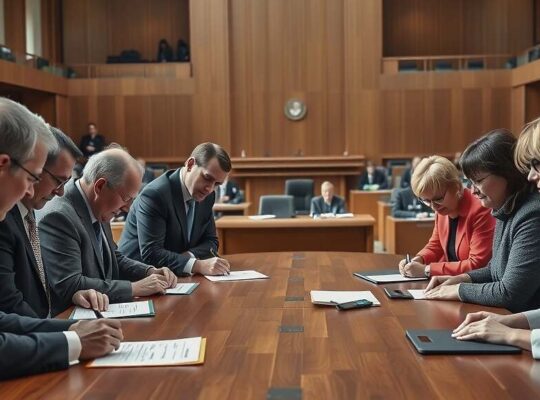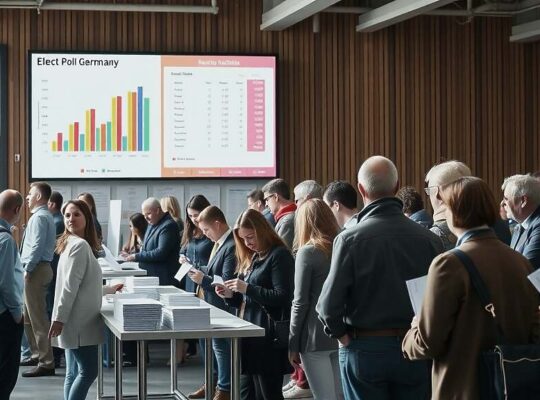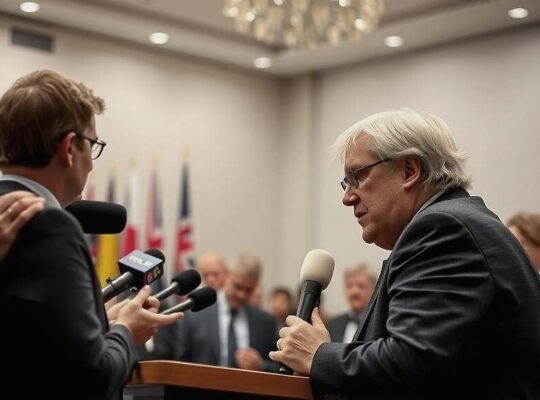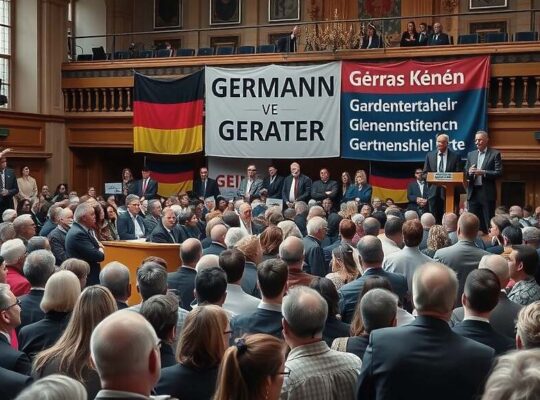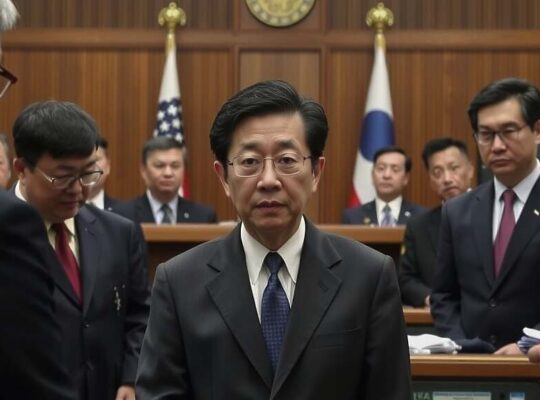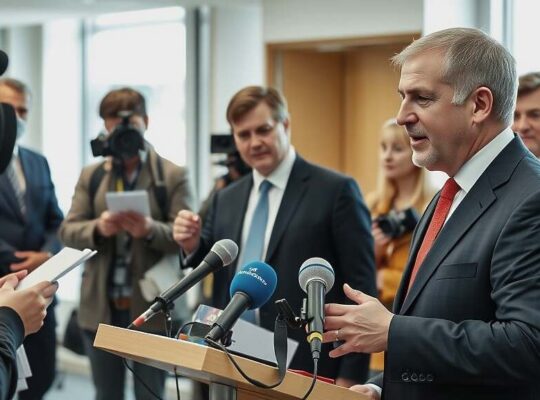The decision by the governing coalition to exclusively appoint their own members to the committee tasked with reforming electoral law has drawn considerable criticism, raising concerns about inclusivity and democratic process. Leaders from opposition parties argue the move demonstrates a pattern of excluding dissenting voices in decision-making.
Ines Schwerdtner, co-leader of the Left party, told the “Süddeutsche Zeitung” that the governing coalition should cease operating in an exclusive manner and meaningfully involve the opposition in crucial decisions. She warned that such actions fuel voter disillusionment and the perception that the government is acting without regard for public sentiment. She specifically contrasted the current approach with the previous “traffic light” coalition, stating that even then, the Left party was included in similar decisions.
The Green Party echoed these concerns, characterizing the move as reflecting a poor approach to parliamentary engagement. Green Party parliamentary group leader Britta Haßelmann pointed to a recurring pattern where the CDU/CSU prioritized their own parliamentary interests in past electoral law commissions. She highlighted the previous, significant electoral reform undertaken by the “traffic light” coalition, which eliminated overhang and compensatory seats, as a crucial achievement that guarantees both proportional representation and a functional parliament.
Defending their actions, the governing coalition maintained that a swift resolution is the priority. Johannes Fechner, parliamentary manager of the SPD parliamentary group, told the “Süddeutsche Zeitung” that numerous ideas and concepts have already been presented and extended consultations are unnecessary. He explained that consensus within the coalition is the initial step, with wider discussions planned for the legislative process in order to secure a broad majority for the eventual law.
The opposition CDU/CSU countered that the previous “traffic light” coalition had failed to genuinely involve them in their own electoral law changes. Steffen Bilger, parliamentary secretary of the CDU/CSU parliamentary group, described the previous reform as a “fundamental systemic change” arguing that it warranted meaningful, not merely formal, engagement with the opposition. He stated the current reforms represent more targeted corrections aimed at addressing specific issues, such as a situation where not all constituency winners entered parliament.
The new commission is tasked with developing proposals for a constitutionally sound and fair electoral law reform, which will then be openly debated in parliament, including input from the opposition. Bilger and Fechner will both serve on the commission.
The current electoral system, established in 1956, allocated seats based on second-vote percentages, initially filled by direct mandates won through first votes. Excess direct mandates frequently led to overhang seats. In response to a constitutional court ruling, compensatory seats were introduced in 2011 to ensure proportionality. This contributed to a significant increase in the size of the Bundestag and bolstered smaller parties. A 2020 reform partially curtailed this system.
The recently affirmed reform by the current governing coalition eliminates overhang and compensatory seats, resulting in a proportional loss of seats for all parties. While designed to be equitable, the change disproportionately affects the CSU. A significant consequence of this reform is the absence of parliamentary representation for certain constituencies, affecting 23 first-vote winners in the most recent election.




